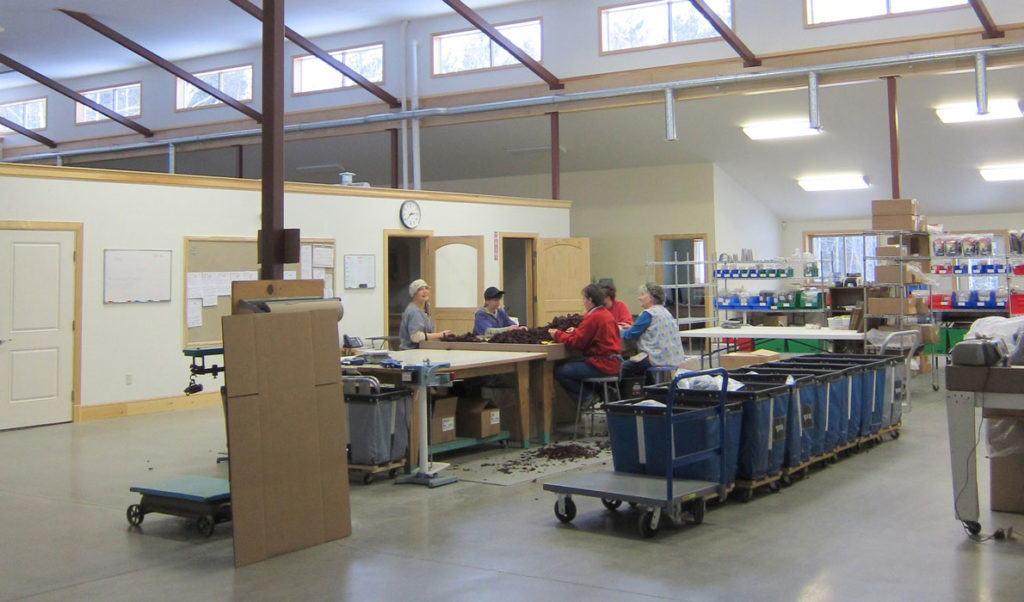Seaweed processor Maine Coast Sea Vegetables has made its long-anticipated move to a new energy-efficient, 1,800-square-foot building in Hancock. The new facility is just 12 miles from the company’s former home in Franklin, but light years beyond it in terms of size, accessibility and comfort, says owner Shep Erhart.
The 44-year-old company employs 20 and last year processed about 100,000 pounds of wild-harvested seaweed. Erhart hopes to increase the volume by about 5 percent annually.
“And if we’re lucky,” he says, “that will mostly be in cultured plants from our farm and others. We’ve really reached our sustainable limit in wild dulse, alaria, kelp, and laver.”
The building achieves Erhart’s highest priorities—abundant natural lighting from windows in all offices and inner clerestory windows, and circulation of adequate fresh air, delivered by a state of the art air exchange ventilation system. It has radiant heating in the floors, where pipes are joined by the wiring and cables of the sophisticated IT system.
In the former building, boxes of seaweed were tucked into nooks and crannies throughout the building. Now, they are neatly stacked on rows of steel shelves, three stories high, in the 80- by 110-foot temperature controlled storage area.
A labeling system makes it easy for employees to locate each of eight varieties of seaweed. At one end of the storage area, two rooms contain computer-controlled humidifying and dehumidifying equipment. On this day, long strands of kelp are spread out on racks to be softened before packing.
A hammer mill and sifter—a $40,000 investment—drastically reduces waste.
“Anything imperfect, such as slightly bio-fouled wild or aquacultured seaweeds, can be milled and sifted,” Erhart says. The mill has four settings—extra fine, powder, granules and flakes—that produce seaweed for a variety of products, such as vitamin capsules, shaker flakes and pet food.
The new building’s well-equipped kitchen and other processing rooms provide ample space for research and development of new products, including processing options for aquacultured seaweeds, which have some different properties from wild harvested seaweeds.
To stretch the resource, Erhart would like to experiment with combining seaweeds with other nutritious foods, and has considered products like ready-made dashi, seaweed salad and kraut, and a nutritious soup cup.
He looks forward to creating the first Atlantic nori sheet, using laver raised at the farm in Frenchman’s Bay where he and Sarah Redmond are growing dulse, laver, sugar kelp and alaria.
Erhart and Redmond recently received organic certification of their farmed seaweed from Maine Organic Farmers and Growers Association. They hope it will pave the way for Maine Coast Sea Vegetables, which processes only organic products, to utilize the new facility for cultured seaweeds and their value added products.





